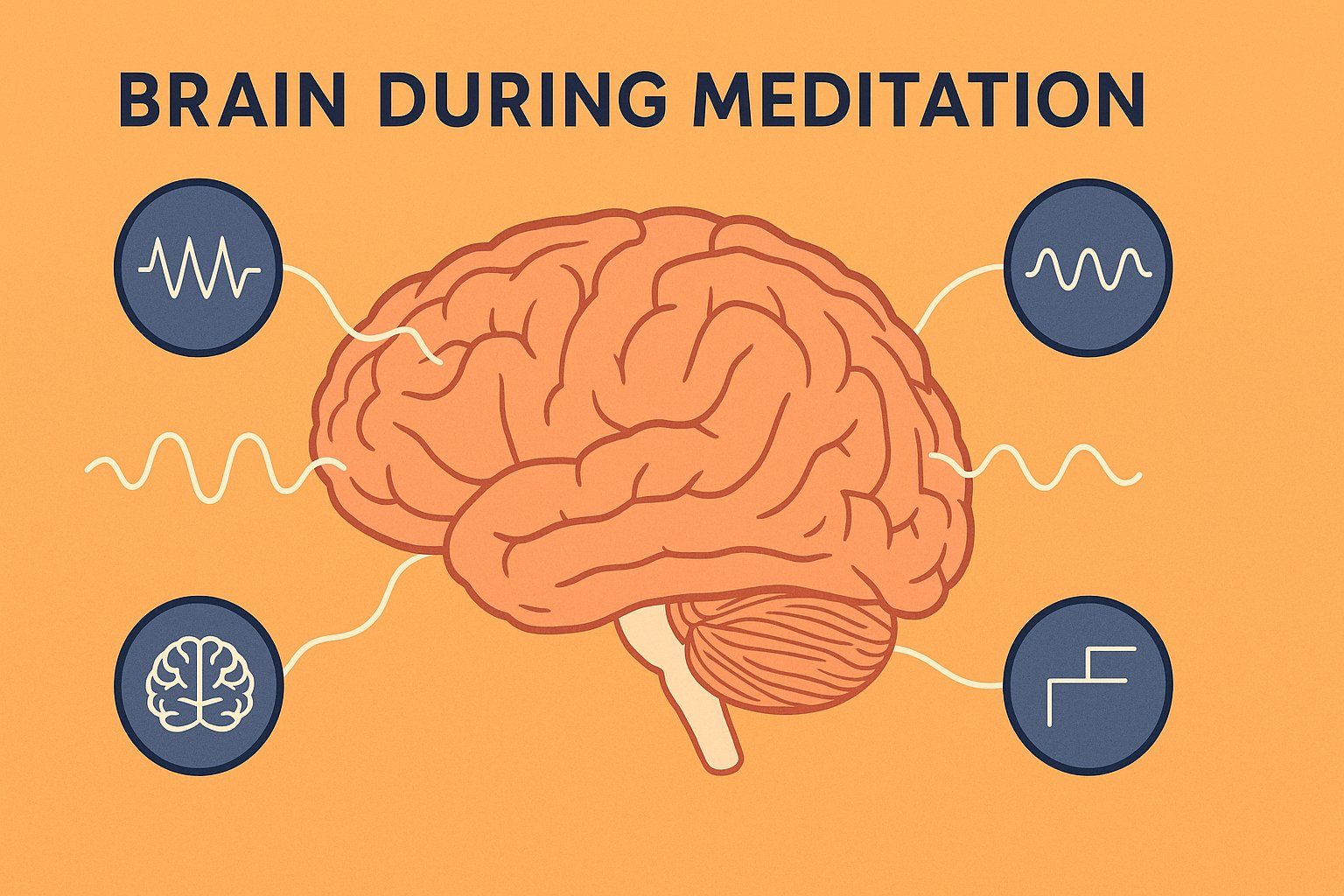Brain During Meditation?
In today’s fast-paced world, finding moments of calm and clarity is essential. Meditation, an ancient practice, offers a pathway to inner peace and holistic well-being. At WeAuras, we delve into the transformative effects of meditation on the mind, brain, and body, supported by scientific insights and research.
The Brain on Meditation: A Symphony of Neural Harmony
Meditation induces measurable changes in brain activity and structure, enhancing cognitive functions and emotional regulation.
Brainwave Modulation
During meditation, the brain exhibits distinct patterns of neural oscillations:
Gamma Waves: Associated with heightened learning and memory. Experienced meditators display increased gamma activity, indicating enhanced cognitive processing even in relaxed states.
Alpha Waves: Linked to relaxation and reduced anxiety. Meditation elevates alpha wave activity, promoting a calm yet alert mental state.
Mindworks Meditation & Buddhist Path
+1
Mindworks Meditation & Buddhist Path
+1
Structural Enhancements
Regular meditation leads to structural brain changes:
Increased Gray Matter: Areas responsible for memory, empathy, and emotional regulation, such as the hippocampus and prefrontal cortex, show increased gray matter density.
Reduced Amygdala Size: The amygdala, associated with fear and stress responses, tends to shrink, correlating with decreased anxiety levels.
Mindful Benefits: Emotional and Cognitive Elevation
Meditation fosters a positive outlook by:
Mindworks Meditation & Buddhist Path
+1
Mindworks Meditation & Buddhist Path
+1
Reducing Stress and Anxiety: By lowering cortisol levels, meditation helps manage stress and alleviate anxiety symptoms.
Improving Mood: Regular practice is linked to increased dopamine production, enhancing feelings of happiness and contentment.
Additionally, meditation sharpens mental faculties:
Enhanced Focus: Practices like mindfulness meditation improve the brain’s ability to concentrate and sustain attention.
Improved Memory: Increased activity in the hippocampus supports better memory retention and recall.
Greater Cognitive Flexibility: Meditation encourages adaptability in thinking, aiding problem-solving and creativity.
🏃♂️ Physical Health: The Bodily Benefits of Meditation
The mind-body connection means that mental practices like meditation have tangible physical effects.
Cardiovascular Health
Meditation contributes to heart health by:
Lowering Blood Pressure: Relaxation responses reduce strain on the heart and arteries.
Improving Heart Rate Variability: Enhanced variability indicates better stress resilience and autonomic nervous system balance.
Immune System Support
Regular meditation boosts immunity by:
Enhancing Lymphocyte Production: These white blood cells are crucial for fighting infections.
Reducing Inflammation: Lower stress levels decrease pro-inflammatory cytokines, mitigating chronic inflammation.
Pain Management
Meditation alters the perception of pain:
Modulating Pain Signals: Mindfulness practices change how the brain processes pain, reducing its intensity.
Enhancing Coping Mechanisms: Meditators often report increased tolerance and reduced emotional reactivity to pain.
🌙 Sleep and Digestive Health: Restoring Balance
Improved Sleep Quality
Meditation promotes better sleep by:
Facilitating Relaxation: Techniques like focused breathing calm the nervous system, making it easier to fall asleep.
Reducing Insomnia Symptoms: Mindfulness practices help break the cycle of rumination that often hinders sleep.
Digestive Benefits
Meditation aids digestion through:
Alleviating Irritable Bowel Syndrome (IBS): Stress reduction from meditation can relieve IBS symptoms.
Enhancing Gut-Brain Communication: A calmer mind positively influences digestive processes.
Embarking on Your Meditation Journey
Starting a meditation practice is accessible and rewarding:
Begin with Short Sessions: Start with just a few minutes each day, gradually increasing the duration as you become more comfortable.
Choose a Technique: Explore various methods such as mindfulness, transcendental, or Zen meditation to find what resonates with you.
Consistency is Key: Regular practice yields the best results. Aim for daily sessions, even if brief.
Utilize Resources: Guided meditations, apps, and local classes can provide structure and support.
Embracing meditation can lead to profound transformations in your mental, emotional, and physical well-being. At WeAuras, we’re committed to guiding you on this journey towards inner harmony and holistic health.


